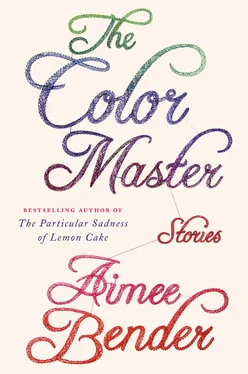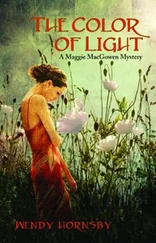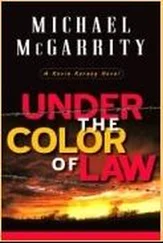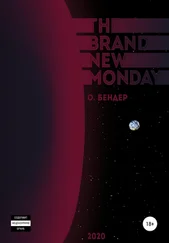The young man, bleeding all over the wall, waved off offers to go to the hospital or the doctor. “No, thank you, thank you,” he said, stumbling inside, using up a pile of brown recycled napkins, then holding the café’s one pint of coffee ice cream to his nose, and the businessman kept saying, “It will heal poorly,” and the young man said that was the point. And he shook the hand of the tight businessman, who was feeling cheated, as if he’d had a taste of nectar he could hardly even feel in his mouth. The young man waved at Marty, who was at the pay phone telling about his revelation, and he headed home. There, he tended to his nose for days, hoping and hoping, and he went over to his mother’s on the day he was ready to really look at it straight on, ready to remove the Band-Aids making a little pattern all over his face. She was in the kitchen, eating jelly beans off the counter—eating them even when they turned into tiny tractors and then back again—and she helped him peel each Band-Aid off, one at a time, and then they both went to the bathroom mirror. She put a hand on his shoulder. They stared at his face for a long, long time.
What had happened of course is that it had healed symmetrically. The nose was severely broken and bumpy, but the bump was a band over the middle of his nose. It had complicated the vertical planes of his face, but horizontally he still matched himself exactly. The young man’s eyes filled, and he felt the despair rushing into his throat, but his mother, wiping his cheeks clear of the leftover crusted blood, breath smelling of jelly beans, listened to the story and laughed, and said, “Son, my sweet, sweet son, it’s just that you are a butterfly. That’s just what you are. I don’t think you can do anything about it.”
Finally, he was eating a hamburger one afternoon and, licking the ketchup off the knife, he cut open the side of his lip. It was a small mark, but it needed stitches, and when they took out the stitches he had a small raised area above the left side of his lip which provided the desperately needed window. He met a woman—Sherrie-Marla—in a week. True, about a month or two later, she, while kissing him passionately, bit the other side, creating an identical mark. She dabbed ice on his lip, apologizing, and he dreaded it, dreaded her change, his eyes filling with tears in advance of her leaving, but the fact was, Sherrie-Marla trusted him already. When he took the ice off, and showed to her his new symmetry, she didn’t flinch. His face was him to her now; it was not a map or an indicator of some abstract idea. Turned out it was only the first impression he’d needed to alter.
His mother came over for brunch with her Sunday suitor, and when she saw Sherrie-Marla take her son’s hand and kiss it on the thumb, a circle completed inside her.
In bed, after the brunch, Sherrie-Marla turned to him with clear eyes, touching his lip wound with her fingertips, her head propped on her open hand.
“You have movie star lips now,” Sherrie-Marla told him, smiling, as he leaned in to kiss her, tenderly, her kisses very, very gentle on the sore area, just pillows in the air between them.
Her own face was wildly asymmetrical. One eye much higher than the other. A nostril tilted. The smile lopsided. The front right tooth chipped. The dented chin. The larger right breast. The slightly gnarled foot. It had caused her her own share of problems. We are all, generally, symmetrical: ants, elephants, lions, fish, flowers, leaves. But she was a tree. No one expects a tree to be symmetrical at all. It opens its arms, in its unevenness, and he, the butterfly, flew inside.
When we came home from the movie that night, my sister went into the bathroom and then called out to our mother, asking if she’d bought another toothpaste as a hint.
I know I have major cavities, she said. But do we really need two?
Two what? asked my mother.
Two toothpastes, said Hannah.
My mother took off her jacket for the first time in hours, and peered in the bathroom, where, next to the grungy blue cup that holds the toothbrushes, there were now two full toothpastes.
I only bought one, she said. I think. Unless for some reason it was on sale.
We all shrugged in unison. I brushed my teeth with extra paste and went to bed. This incident would’ve been filed away in non-memory and we would just have had clean teeth for longer, except that in the morning there was a new knickknack on the living room side table, a slim abstract circle made of silver, and no one had any idea where it came from.
Is it a present? asked our mother with motherly hope, but we children, all too honest, shook our heads.
I don’t know what that is, I said, picking it up. It felt heavy, and expensive. Cool to the touch. Nice, Hannah said.
My mother put it away in the top of the coat closet. It was nice, but it felt, she said, like charity. And I don’t like too many knickknacks, she said, eyes elsewhere, wondering. She went to my grandmother and brought her a lukewarm cup of tea, which Grandma accepted and held, as if she no longer knew what to do with it.
Drink! my mother said, and Grandma took a sip and the peppermint pleased her and she smiled.
Happened again the next evening when, while setting up for a rare family dinner, my mother stood, arms crossed, in front of the pantry.
Lisa, she said, you didn’t go to the market, did you?
Me?
Hannah?
No.
John?
No.
Grandma never shopped. She would get lost in the aisles. She would hide beneath the apple table like a little girl. Our mother, mouth twisted to the side in puzzlement, found soup flavors in the pantry she swore she never would’ve considered buying. She held up a can of lobster bisque. This is far too bourgeois for me, she said. Wild rice and kidney bean? she said. Lemongrass corn chowder?
Yum, yelled Dad from the other room, where he was watching tennis.
Hannah paused, placing spoons on napkins. I don’t really like soup, she said. I shook my head. Not me, I said. I definitely hate soup.
Our mother tapped her fingers against the counter. What is going on? she asked.
Hannah lined up the spoon with the knife. We’ve been backwards robbed, she said solemnly.
I laughed, but her eyes were serious.
All’s I know is, she said, I did not buy that soup.
Neither did I, said Mom.
Neither did I, called Dad from the other room.
I could tell I was still the main suspect, just because I seemed the most interested in all of it, but as I explained repeatedly, why would a person lie about bringing food and new knickknacks into the house? That is nice. That is something to get credit for.
Dad cooked up the corn chowder after he found an enormous piece of gristle in his mustard chicken. We all watched him closely for choking or poisoning, but he smiled after each spoonful and said it was darned good and very unusual. Like Southwestern Thai, he said, wiping his mouth. Like … the empress meets Kimosabe, he said. Like … silver meets turquoise, he said, laughing. Like … We all told him that was enough. Hannah checked the inside of the can for clues. After dinner, Dad collected water glasses from the rooms, singing.
That night, I kept a close eye on the back door, but it stayed locked; I even fixed a twig at its base to see if it got jigged during the night, but in the morning, all was just as before. I was walking to the bathroom to get ready for school when Mom cried out, and I ran over, and she was standing over the kitchen table, which held an extra folded newspaper. Hannah found a third pewter candlestick that matched the previous two, standing tall in the bookshelf. We ate our breakfasts in silence. Although getting robbed would be bad, there was nothing appealing about getting more items every day, and I felt a vague sense of claustrophobia pick up in my lungs, like I might get smothered under extra throw pillows in the middle of the night. And we couldn’t even sell the new stuff for extra cash, because everything we got was just messed up enough to make it unappealing—the pewter candlestick was flaking into little slivers, and the silver circle thing had a subtle, creepy smell.
Читать дальше












